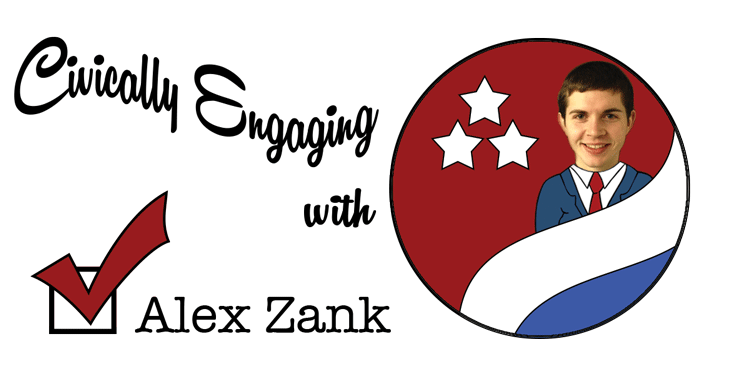Civically Engaging with Alex Zank
Recent victories on same-sex couples’ rights show this isn’t a legal question of religious freedom
March 5, 2014
The South has perhaps been a surprising venue for the most recent strides toward equality.
Last Wednesday, a Texas judge struck down the state’s ban on same-sex marriages, following a similar Oklahoma ruling in January for its marriage restrictions. On the same day, Arizona Gov. Jan Brewer vetoed a bill that would have granted businesses the right to deny service to gay men, lesbians or other individuals on religious grounds.
These steps make it clearer than ever that the issue of same-sex couples’ rights are indeed not a question of religious freedom, but an adherence to civil liberties guaranteed by the U.S. Constitution.
U.S. District Judge Terence Kern, presiding over the case in Oklahoma, wrote in the ruling that “Oklahoma’s constitutional amendment limiting marriage to opposite-sex couples violates the Equal Protection Clause of the Fourteenth Amendment” of the Constitution, adding this protection was “at the very heart of our legal system.”
It’s important to note there is no way of stopping someone of downright disliking a group of people. The Ku Klux Klan, for example, is still an active group.
What we won’t tolerate as a nation, however, is legally discriminating against a group of people over something that makes them no less human than us — in essence, we cannot infringe on a person’s natural rights.
These rights are protected in the Constitution and its subsequent amendments. There is no rule or law regarded as superior. This includes any kind of holy text, which someone may use to argue against these laws. If we regarded any religious doctrine in a higher esteem to the Constitution, simply put, we would not be a democratic nation. We’d be an autocratic religious state.
The nature of guaranteeing basic freedoms should explain itself as to why it’s important for us to care about LGBT equality. From what I’ve experienced on campus, we seem to be accepting of all people regardless of sexual orientation or gender identification. But that doesn’t mean we can pat ourselves on the back for a job well done.
In Wisconsin, gay marriage is banned in our Constitution. This ban was put in place in 2006 after a popular vote siding in favor (which brings up another argument entirely that I lack space to get into). This clearly shows there is still a lot of work to do.
It also shows just because there’s a strong network of acceptance or a victory of legal equality in one place does not mean the battle is over. People are still being treated unequally, and the Constitution still is being ignored in these cases.
On an individual level, we can continue striving for equality by teaching tolerance instead of wrongfully framing discrimination under the guise of a question on religion.
The more and more people understand a person’s sexual orientation is just a part of who they are rather than a lifestyle choice increases our overall understanding as to why barring same-sex couples from having the same freedoms as everyone else is legally wrong.











